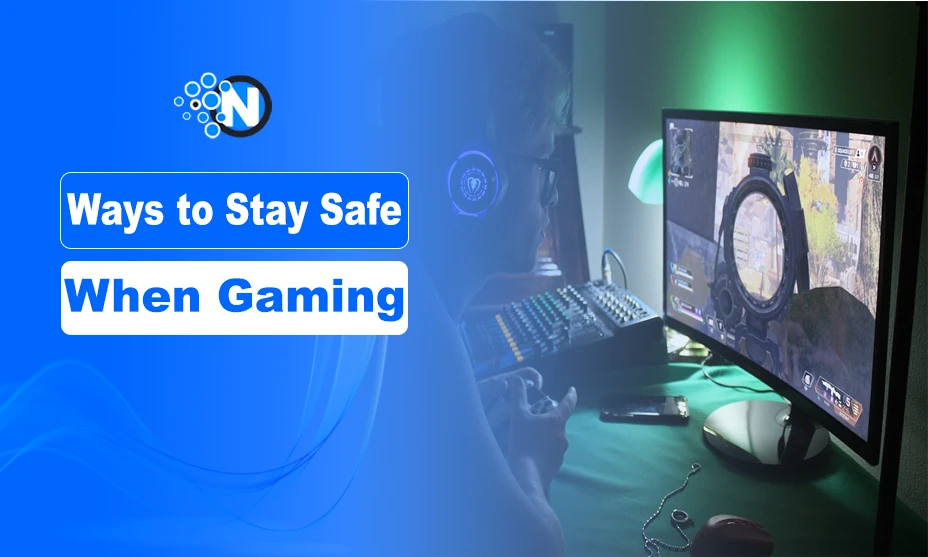7 Ways to Stay Safe When Gaming

Gaming is more popular than ever with the broader industry now a diverse and expansive arena encompassing many different sectors. From Massively Multiplayer Online Role-Playing games (MMPORPGs) to iGaming options, the world of online gaming truly does cater to gamers of all tastes.
However, as much as there are a huge variety of different games and ways to play them now, the risks that gamers face from online threats have grown too. While gaming can be a lot of fun, it’s become more important than ever for gamers to take precautions for their safety. Here are seven essential ways to protect yourself while gaming, ensuring a safe and enjoyable experience.
1. Watch Out for Scams and Phishing Attempts
As the world of internet-based gaming grows more diverse, so too does the sophistication of scams and phishing attempts. This kind of scam is often used to target online casino enthusiasts, also known as iGamers.
This is because online gambling games use real money and see massive in and outflows of money between players and their favorite platforms as they both top up accounts and withdraw winnings. Choosing the right platform is therefore essential for iGamers to ensure they don’t end up at a scam site, one that has weak security protocols, or one that is often targeted by scammers.
The best online casinos out there distinguish themselves by being able to provide a mixture of a seamless and engaging gaming experience and a secure platform to play from. This means they include robust security features, are fair, and can be trusted by players, but also offer other perks like a wide variety of games, generous bonuses, and a seamless payment process (source: https://www.business2community.com/online-casinos).
However, phishing scams are still common in all types of gaming. They happen when players are tricked into revealing their login details or downloading harmful software. To combat them, players should be wary of messages asking for personal information, even if they appear to be from a trusted source.
Scammers may impersonate game support, popular streamers, or other players to gain your trust. Avoid clicking on links from unknown sources or providing any personal information through chat or email. Always verify the legitimacy of messages before taking any action.
2. Use Strong Passwords and Two-Factor Authentication
Passwords are your first line of defense regardless of what kind of gaming system or software you’re using. Make sure to choose a strong password that includes a combination of alphanumeric characters and is at least 12 characters long. Avoid common words or easily guessed information, like your username or birthday.
For gamers, it’s always advisable to enable two-factor authentication (2FA). As a better way to secure any important gaming accounts and profiles you may use. This deepens your security measures, requiring you to verify your identity with a code sent to your phone or email.
Strong passwords in conjunction with other best practices for 2FA make it harder for hackers to access your accounts. This keeps your gaming experience safe. The strongest defense it provides is that a person can actually have your password. Further, the you will still not be able to access your account.
3. Be Cautious with In-Game Purchases and Trading
In-game purchases are a huge part of modern gaming, but they can also pose risks. Only buy from official game stores and avoid unofficial websites offering discounts or exclusive items. Some players may attempt to trick others into trading valuable items in exchange for virtual currency or rewards.
This is a common tactic and is often used against newer gamers who may not be accustomed to how things work yet or the prevalence of these kinds of scams. As much gaming can be a lot of fun, as online gaming connects people from all over the world. It can easily be used by scammers and hackers to socialize with a range of potential victims, most of whom are younger persons who may be naive about the dangers they are exposed to.
To avoid being taken advantage of through in-game purchases, some players simply opt to play free games instead.
4. Keep Your Software Updated
Regularly updating your gaming software, system software, and any security programs is crucial for staying safe. Software updates often include patches for security vulnerabilities that hackers can exploit.
If these updates are ignored, your system can be left vulnerable to attacks. This is because updates usually include critical security patches to safeguard against any new threats that may have come about.
5. Monitor Your Network Security
When gaming online, a secure network is essential. Avoid playing on public Wi-Fi networks, as they’re easier for hackers to access. Instead, use a private, secured Wi-Fi network at home. For added protection, consider using a Virtual Private Network (VPN), which should be distinguished from a proxy server. VPNs encrypt your internet connection and shield your IP address from potential attackers.
A VPN can help you maintain your privacy and protect your personal information while gaming. These devices are also great for shielding your IP address to enable users to access online services like streaming sites that may ordinarily be geo-restricted.
6. Limit Sharing Personal Information
In online gaming, sharing too much personal information can be risky. Avoid revealing your real name, location, age, or other details that could be used to identify you. These things can easily be used against you by cross-referencing them with social media accounts or other public profiles.
Players should also be cautious when chatting with other players, especially if you don’t know them in real life. Keeping your identity private reduces your risk of being targeted by scammers or hackers who can use that information against your cybersecurity.
Online spaces can also be hotbeds for everyone from predators to cyber bullies and all manner of other unscrupulous types. A great example of how to keep personal information to yourself is by using your gaming tag and never your real name.
7. Be Mindful of In-Game Behavior and Chat
Gaming can be a highly social experience, but it’s essential to keep interactions safe and respectful. Avoid responding to toxic players or engaging in arguments. This can lead to harassment or even targeted attacks on your account. Many games have reporting features for abusive players, so use these tools instead of engaging.
Conclusion
Staying safe while gaming is essential, especially in today’s digital world where online interactions are constant. Following these eight tips can help you protect your personal information, prevent scams, and ensure a positive gaming experience. Play smart, stay vigilant, and enjoy your games without worry.




